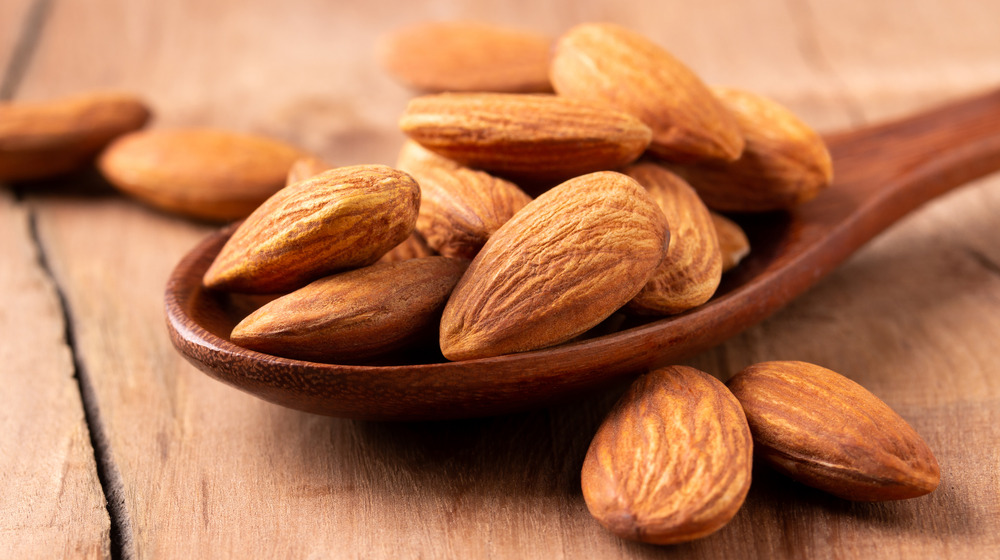The Surprising Side Effect Of Eating Too Many Almonds
Sticking to a healthy daily regimen can consist of different approaches for anyone looking to shed some weight, boost their metabolism, or feel better in their day-to-day. While there are various tactics you can use — from exercise to meditation — ultimately many people look to their diets to make major changes, and opt to incorporate more healthy foods, like almonds. But doing our best to include healthier snacks can be tough, especially if we are unaware that too much of a good thing can actually become a bad thing. In the case of almonds, some people might not realize that they may be eating too many of these delicious nutrient-rich powerhouses.
There's no denying that over the years almonds have become a key staple in most diets. You might add them to a salad, reach for a handful in between meals, or even drink its milk version in your cereal or coffee. With a long list of incredible health benefits and uses, many might be shocked to find that almonds actually have surprising side effects when over-consumed.
Too many almonds can affect your weight
Packed with antioxidants, almonds are known to benefit skin health, aid in weight regulation, and, most importantly, keep your heart healthy (via Health). But what happens when you add too many almonds to your diet? Although almonds may check off everything on your list of what constitutes a healthy snack, the issue typically revolves around the serving size, which is one ounce and about a quarter cup or 23 whole nuts with 163 calories and 14 grams of fat (via Health).
If over-consumed, almonds can result in weight gain, as they can add more calories and fat to your diet. Eating too many almonds can also cause an increase in manganese and vitamin E, which are known to interfere with medications such as antacids, laxatives, and antibiotics, as well as produce symptoms like blurred vision, diarrhea, and headaches if you overdo it. The key to avoiding these potential issues? Moderation and balance.

